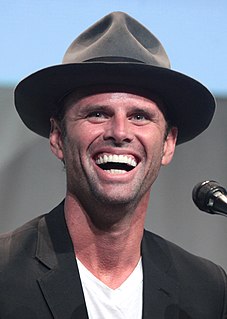A Quote by Bruno Latour
Scientists are very much entangled in their culture and this culture is not pristine, untouched by other cultures and practices.
Related Quotes
All cultures have things to learn from all other cultures. Don't get stuck in your culture! Go beyond it! Get out of your aquarium; get out of your farm; get out of your castle; break your bell jar! Give chance to other cultures and to other opinions! This is the best way for you to see the insufficiencies, absurdities and stupidities in your culture!
One thing I found very interesting about comedians around the world was their knowledge of stuff outside of their own culture and comfort zone. That's not very common in the States. We produce our own soft power, which is pop culture, but we rarely try to absorb and learn information from other cultures and countries.
Much of the rest of the world has already learned some English. They pretty much understand the American way of doing things, because our culture has been ubiquitous and has been the 500-pound gorilla in the global economy. But the world is far more interrelated than ever before, and no one culture can thrive without the knowledge of how to function in other cultures.
The scientists I looked up to at the beginning were not Latino. They were famous scientists of many years ago, like Madame Curie. Later, I realized that there were also, but a very few, Latino scientists. There were good ones, but very few, because there wasn't as much a tradition to be a scientist in our culture. But this is changing.
It's about something that I'm extremely passionate about: exploring other cultures, how Americans are perceived by other cultures and how we perceive other cultures through our worldview. I travel whenever I get an opportunity to do so, and I think this country is ready for a show on television that is bilingual and really puts front and center another culture, both as the protagonist and the antagonist.
It seemed [there are] musical nodes on the planet where cultures meet and mix, sometimes as a result of unfortunate circumstances, like slavery or something else, in places like New Orleans and Havana and Brazil. And those are places where the European culture and indigenous culture and African culture all met and lived together, and some new kind of culture and especially music came out of that.
My interest in culture generally is a comparative one, and I think that's where the word joy, I think, can be applicable. There's joy in actually seeing the relatedness, the connectedness of different cultures or recognising, for instance, your own culture in another or another culture in your own culture and feeling an air to all of them.





































